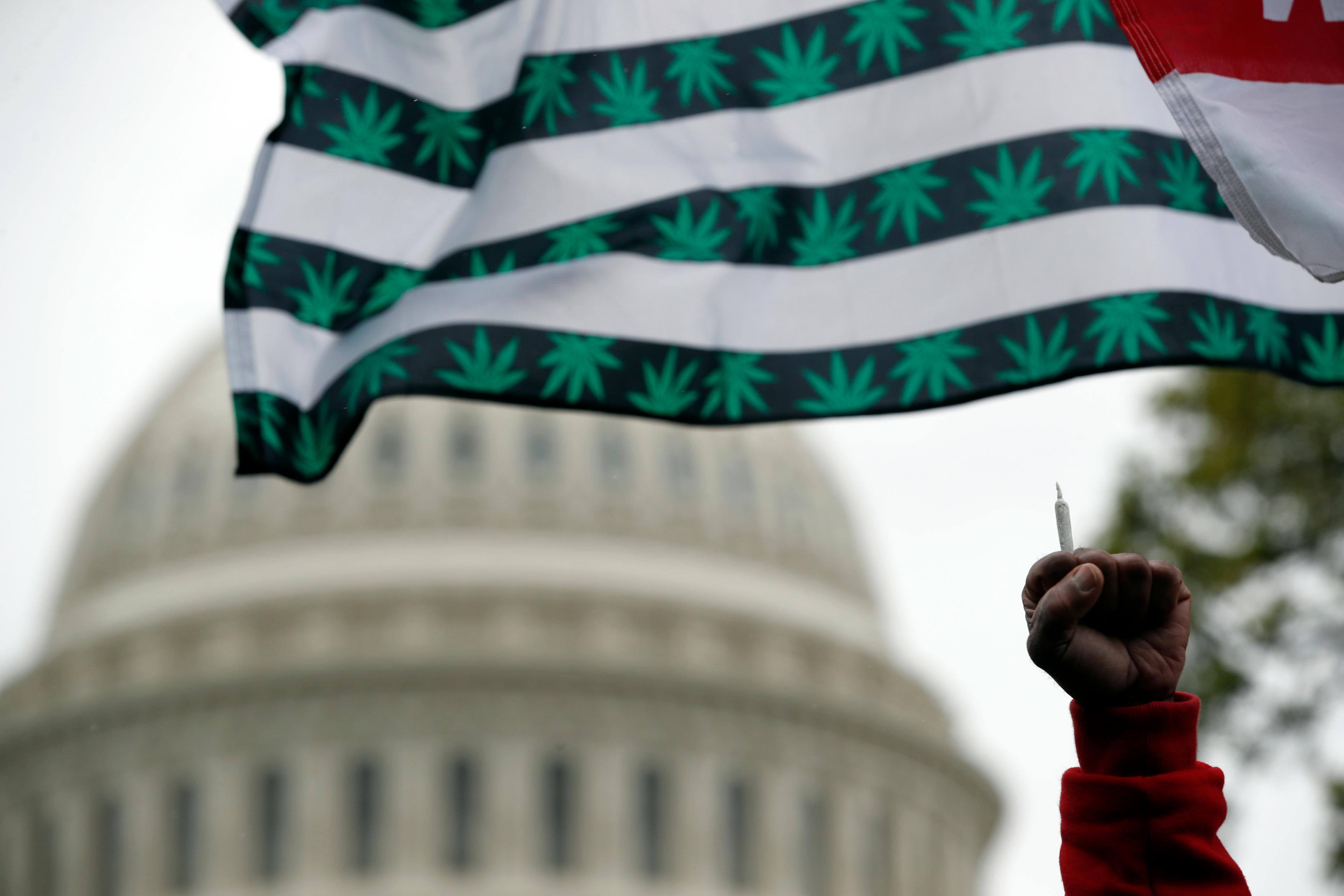
Neal Levine remembers the reaction he would get when he first introduced himself to statehouse legislators as a cannabis lobbyist.
“‘Is that a real job?’” he recalled. Yes, it is a real job.
As more and more states legalize marijuana in one form or another, it's become a billion-dollar industry that has attracted the attention of federal lawmakers and lobbyists.
A big part of the job is educating lawmakers about cannabis as a high tech agricultural industry. That’s something that can still surprise lawmakers.
“They turn to you and say, ‘This is just the business.’ Like there's nothing nefarious going on. We're not sitting around smoking pot with a bunch of Bob Marley posters,” he said.
Levine, who has advocated for legal marijuana businesses since 2003, now heads the Cannabis Trade Federation in downtown Washington, D.C. With bare walls and empty rooms, the office isn’t what you’d imagine. That’s because CTF is thriving and has moved into a larger space. At some point soon, CTF's stable of lobbyists will hold strategy sessions in this new space and figure out which legislators to approach about the myriad cannabis bills making their way through Congress or what types of legislation will help cannabis businesses.
The different way that the federal government and some states view marijuana has led to conflicting laws and regulations that Congress is finally trying to untangle.
“Policy is like a spiderweb, right? It touches in places that you don't presume. And when you touch over here, it pulls over here and you don't, it's not always obvious and especially prohibition,” he explained.
Explaining how legitimate businesses get caught in the policy web is where lobbyists like Melissa Kuipers step in. She's a contract lobbyist with Brownstein Hyatt Farber Schreck based in Denver.
She's seen many lobbyists for industries that have high consumer demand and high government regulation, such as alcohol and tobacco, transition to cannabis. Ex-lawmakers have also thrown their hat into the ring. The most well known is former house speaker John Boehner. The Ohio Republican was anti-marijuana while in office but now pitches for the marijuana industry.
The way Kuipers sees it, what she and other lobbyists do is help provide additional credibility to the industry. And that was needed, especially at the beginning.
“There was a time where we couldn’t even get a meeting with certain members,” Kuipers said. Conservative members, both Democrats and Republicans, who felt strongly on the issues of marijuana. For decades many lawmakers opposed anything viewed as pro-cannabis, Kuipers pointed out. It was like muscle memory.
Now the momentum has shifted. And Kuipers and other marijuana lobbyists, aren't denied meetings on the Hill anymore.
“There’s definitely an attitude change that I think is certainly informing the policy maker’s comfort level with making decisions that are in favor of the industry,” Kuipers said. She sees her job as helping pass legislation that is realistic with the current congress.
Lobbying isn't always held in high esteem by some Americans because of money or because of the causes they advocate for, but Kuipers said this is an amazing time to work with the cannabis industry. Essentially, everything has been built from the ground up to help lawmakers learn what worked and didn't at the state level and how state-federal conflicts impact businesses. That’s what drew her to this work. She likes helping shape policies and regulations in this area.
CTF chief Neal Levine agrees.
“People think of lobbying as this nefarious sort of thing when in reality, most of the time, it's a bunch of policy wonks who were sitting there and trying to explain esoteric components of policy and how they touch each other,” he said.
It's also about personal stories. Marijuana lobbyists help their clients tell their experience to lawmakers. How laws and regulations, or the lack of them on the federal level, affect them. These are issues Congress can no longer ignore.
“We are the new emerging industry in this country and we're not going anywhere,” Levine said.









